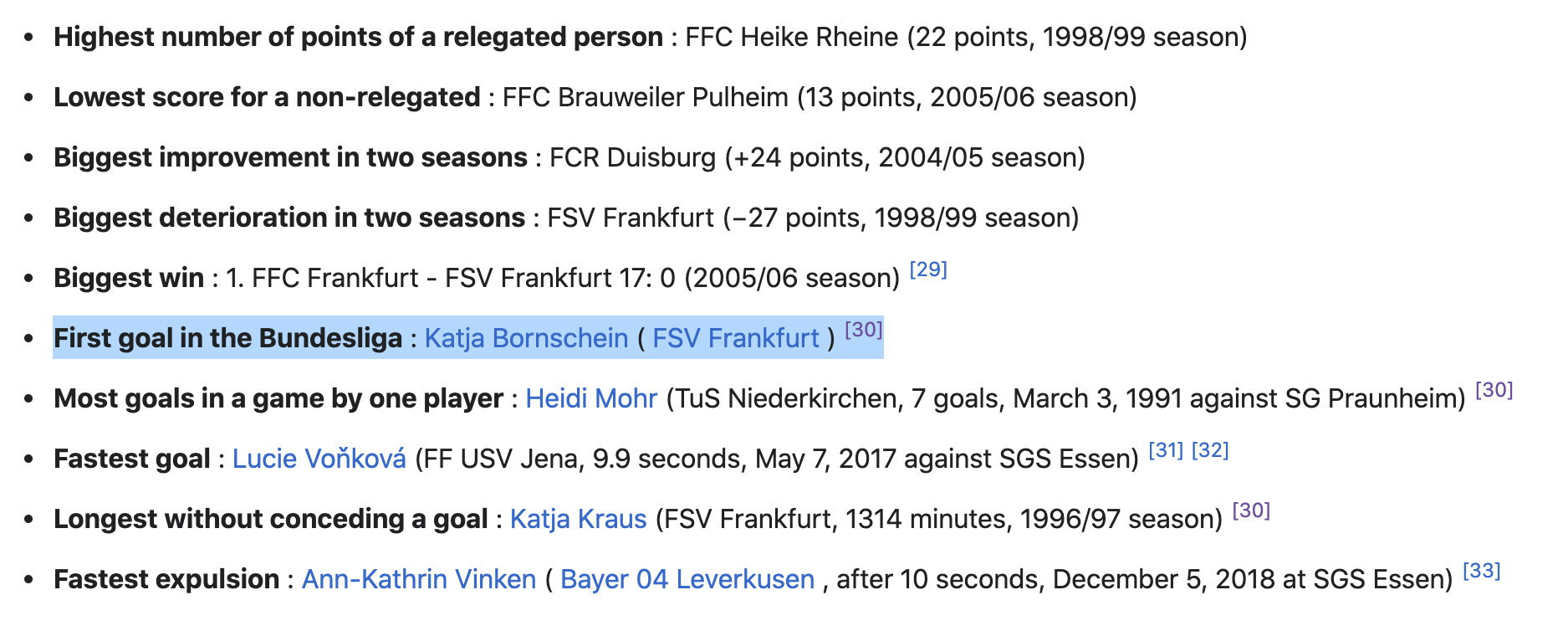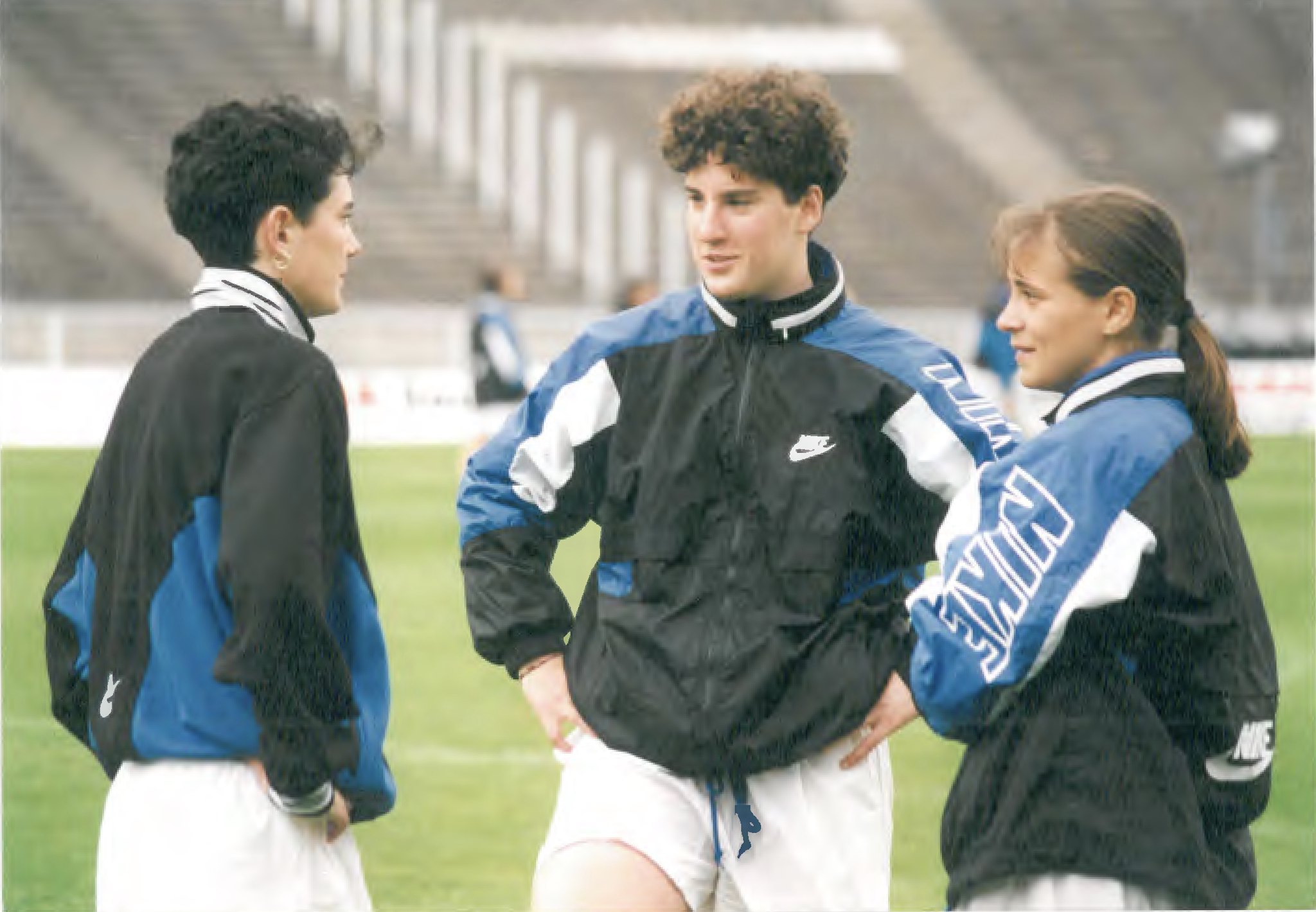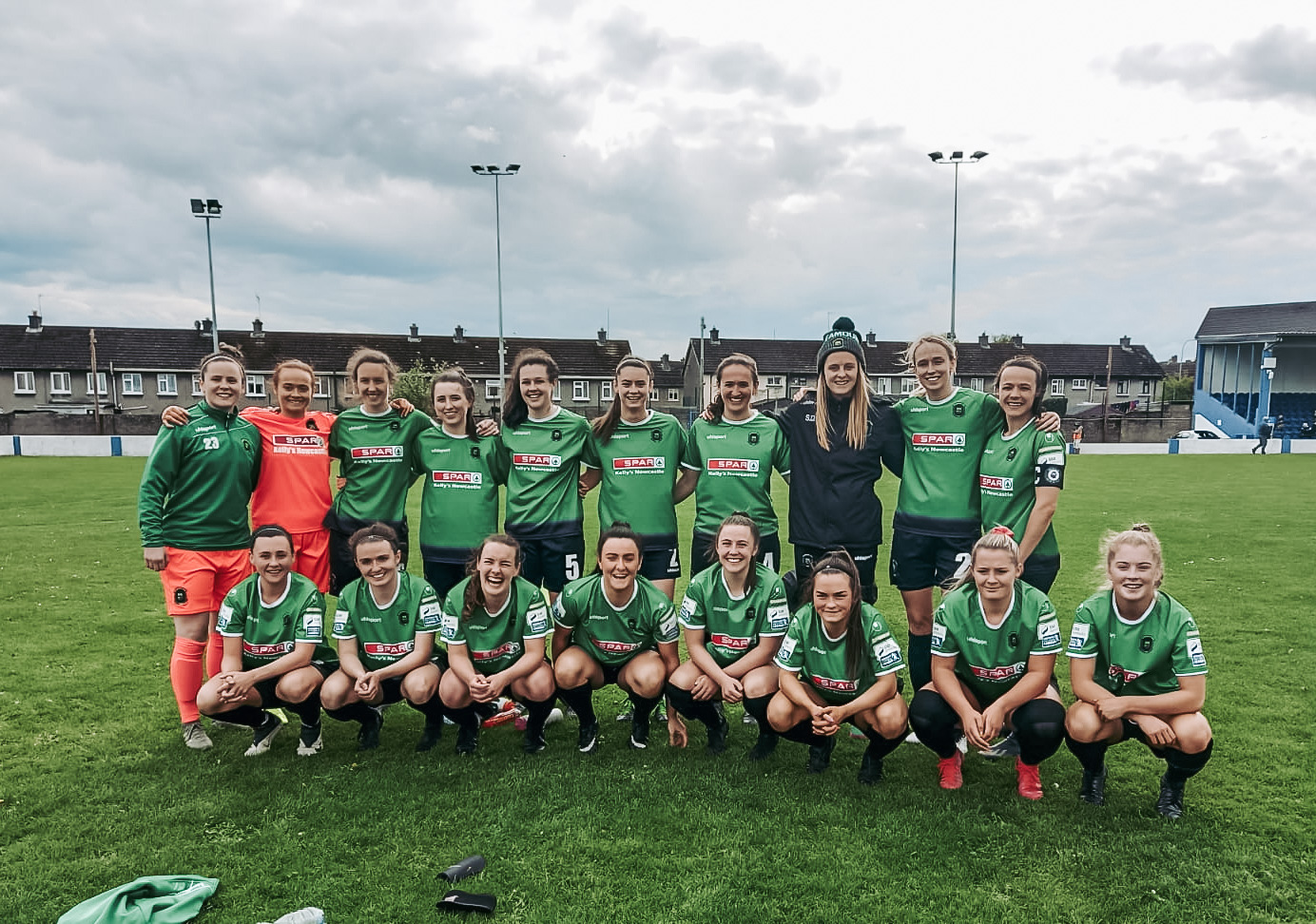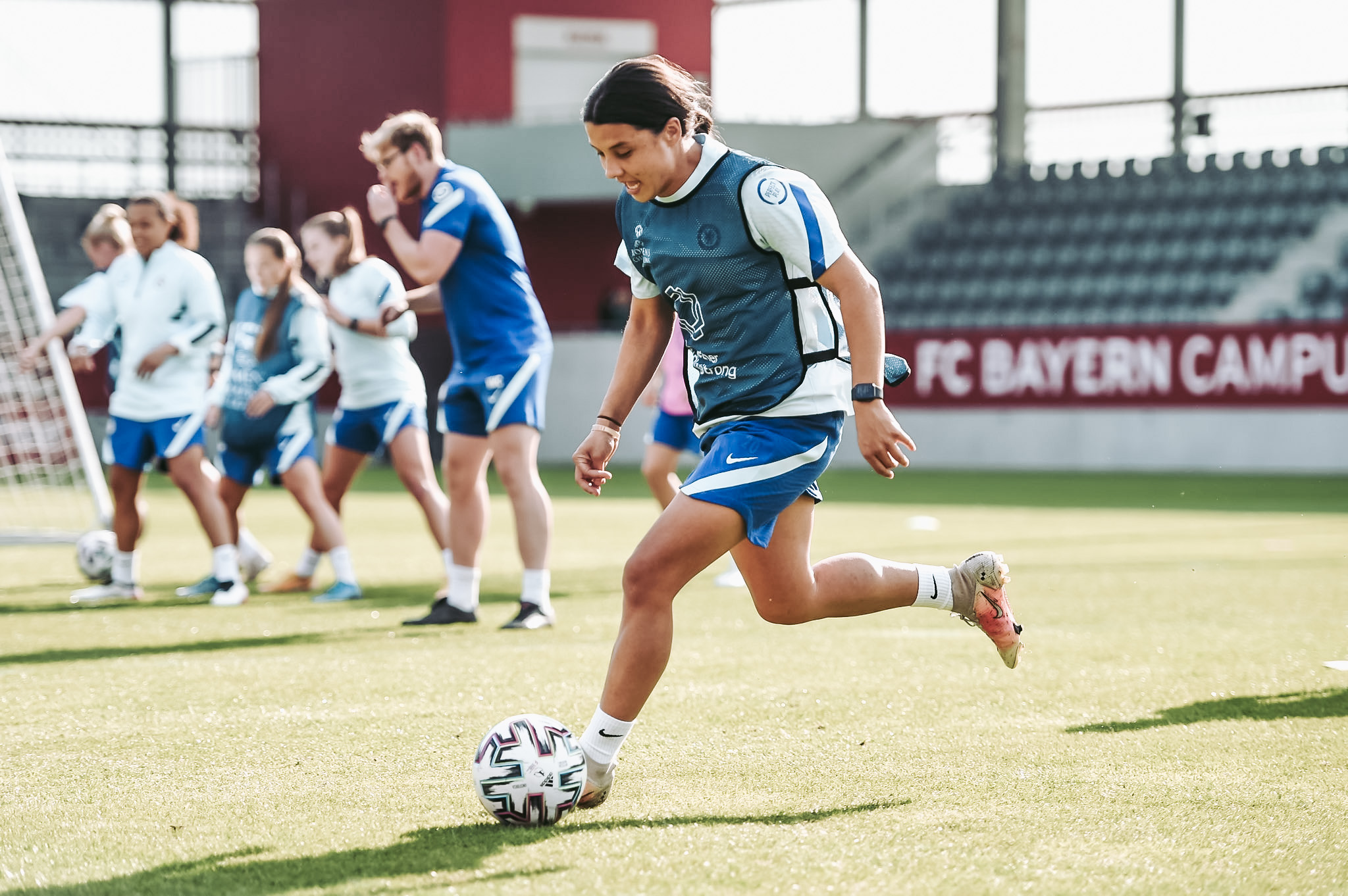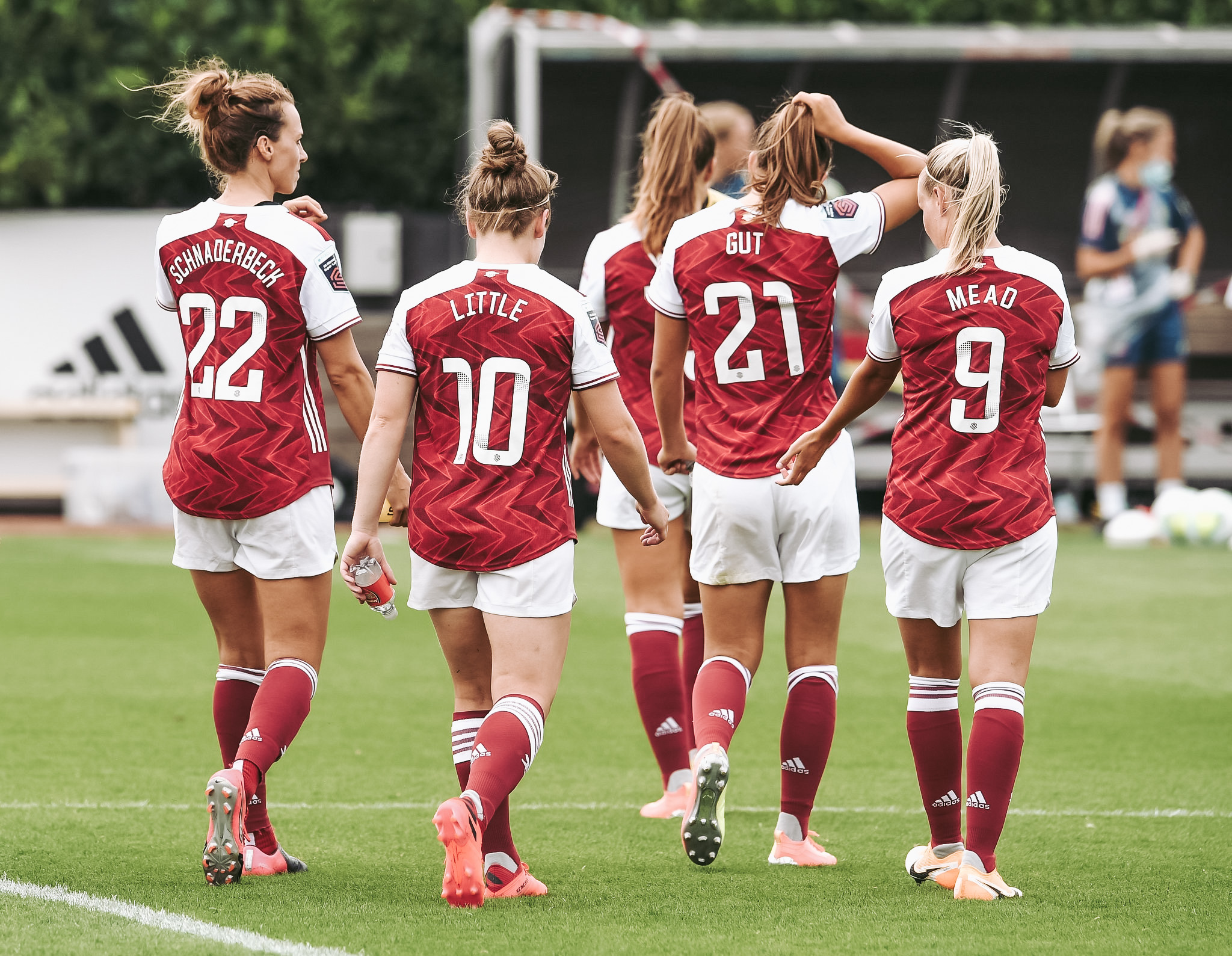Should you believe Wikipedia, SV Wilhelmshaven’s Iris Taaken was the first goalscorer. The source Wikipedia cites as proof is the “BundesligaMagazin 2000/2001”, which was the first issue of a long gone women’s football magazine. On request, the German FA (DFB) reports that they do not have an archive on women’s club football and their only source is the same that Wikipedia uses. Unlike Wikipedia, they provided a picture of the relevant part of said magazine, which reads:
“Records from ten years of Bundesliga: The first Bundesliga goal: That was scored by Iris Taaken of SV Wilhelmshaven in the 1990/91 season.”
It remains uncertain where that information came from or who authored that brief info box.
Further research about Iris Taaken results in finding numerous sources that point in the same direction. The two local newspapers of Nordwest-Zeitung and Ostfriesenzeitung, the Elfen-Magazin, the book “women’s football A-Z” of author Ronny Galczynski and even DFB wrote about Iris Taaken as the first ever Bundesliga scorer. Interestingly, almost all these sources also report that Ms. Taaken only learnt about the significance of her goal years or even a decade later. Sadly, there is also no video footage of the goal that was scored just 55 seconds into the match against 1.FC Neukölln. As the Nordwest-Zeitung report that the match kicked off at 2 pm CET, however, we do learn that apparently football history was written at 2:00:55 pm CET on the 2nd September 1990.
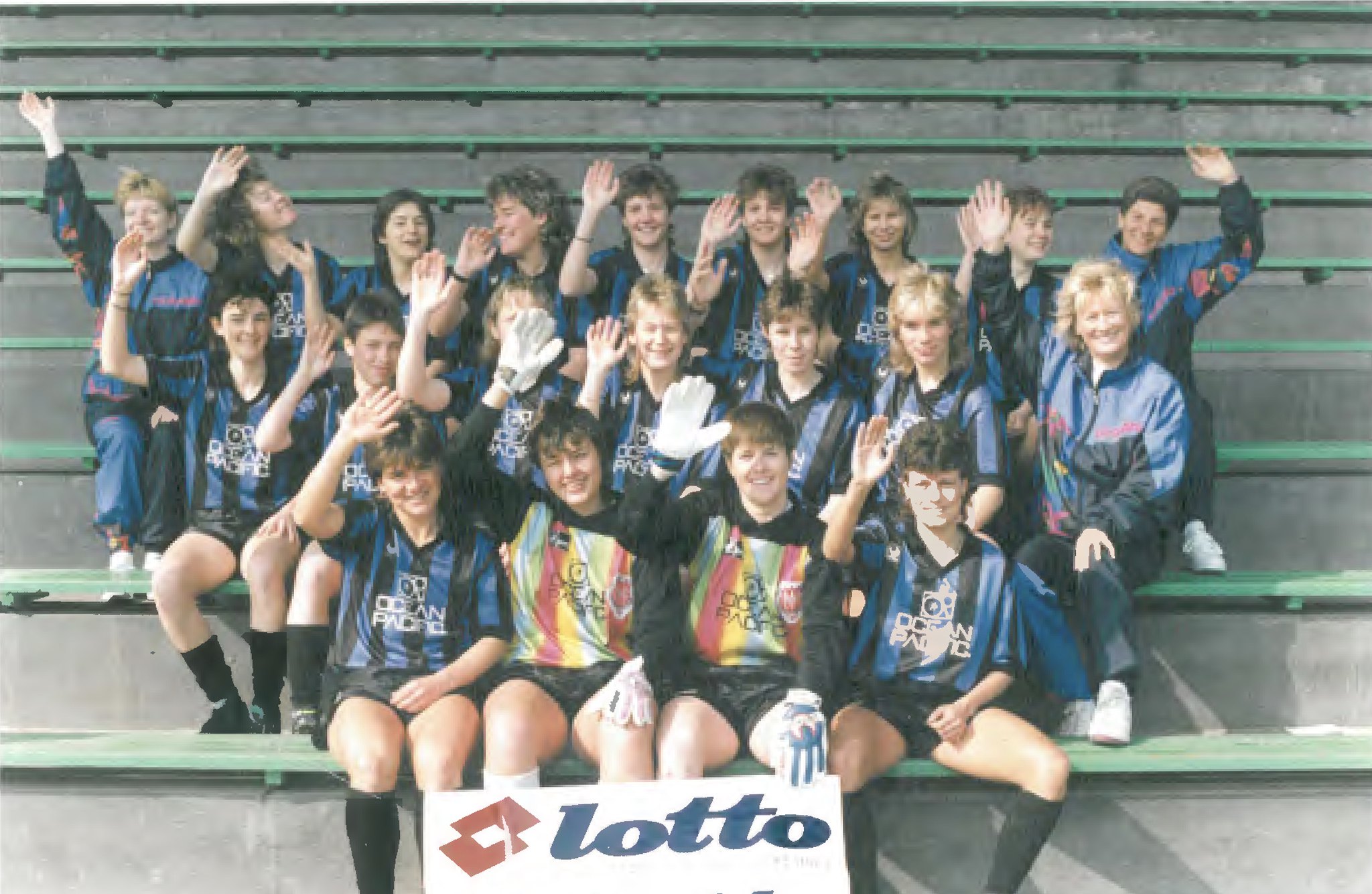
Interestingly, two matches in the Northern Division only kicked off at 2:30 pm and thus wrapped up the day. TSV Fortuna Sachsenroß Hannover and SSG 09 Bergisch Gladbach drew 2:2 in front of a 600 spectator crowd in Hannover. Menge (0:1, 18.), Degwitz-Steinmetz (0:2, 70.) gave the guests from Bergisch Gladbach a clear lead and seemingly wrapped up the match with only ten minutes to go (women’s matches only had 80 minutes back then), but Walter (72.) and Liermann (76.) managed to at least secure one point for the hosts.
Elsewhere later champions TSV Siegen opened the season in style against VfB Rheine in front of a record 800 spectators. Goals by Mink (20., 29.), Knieper (39.), Raith (43.), Voss (47.) and Neid (69.) meant the host comfortably won 6:0.
Thanks to all the hard work the record books, well… Wikipedia at least, has been re-written to credit Katja Bornschein.
